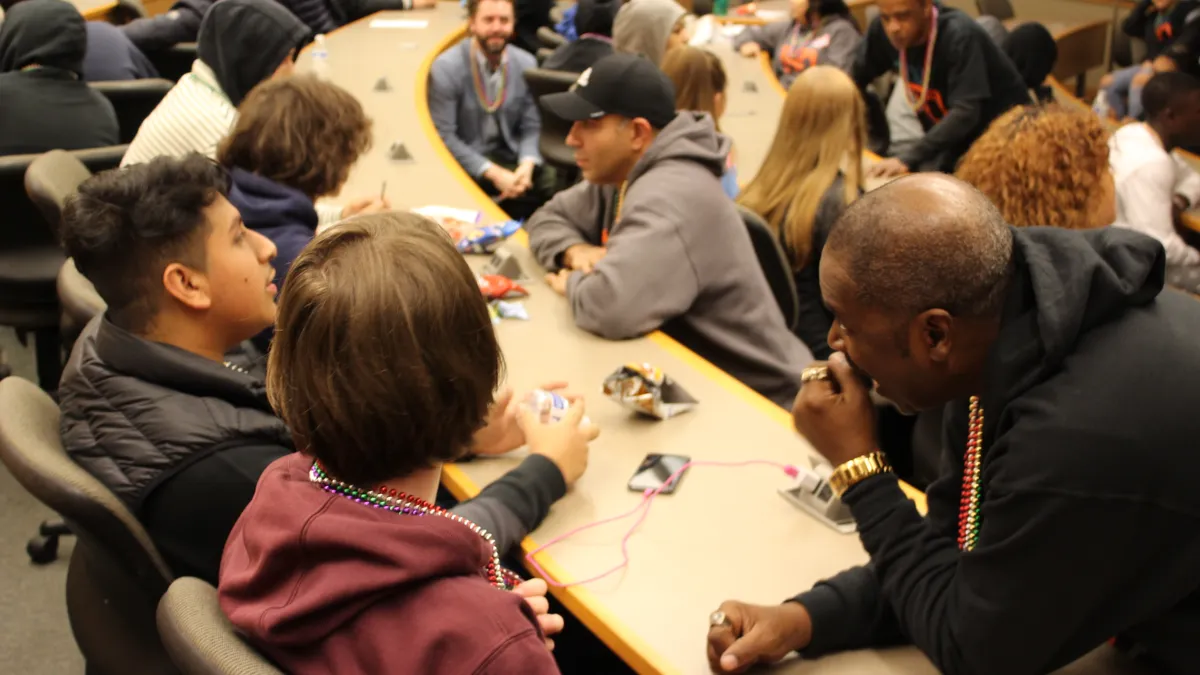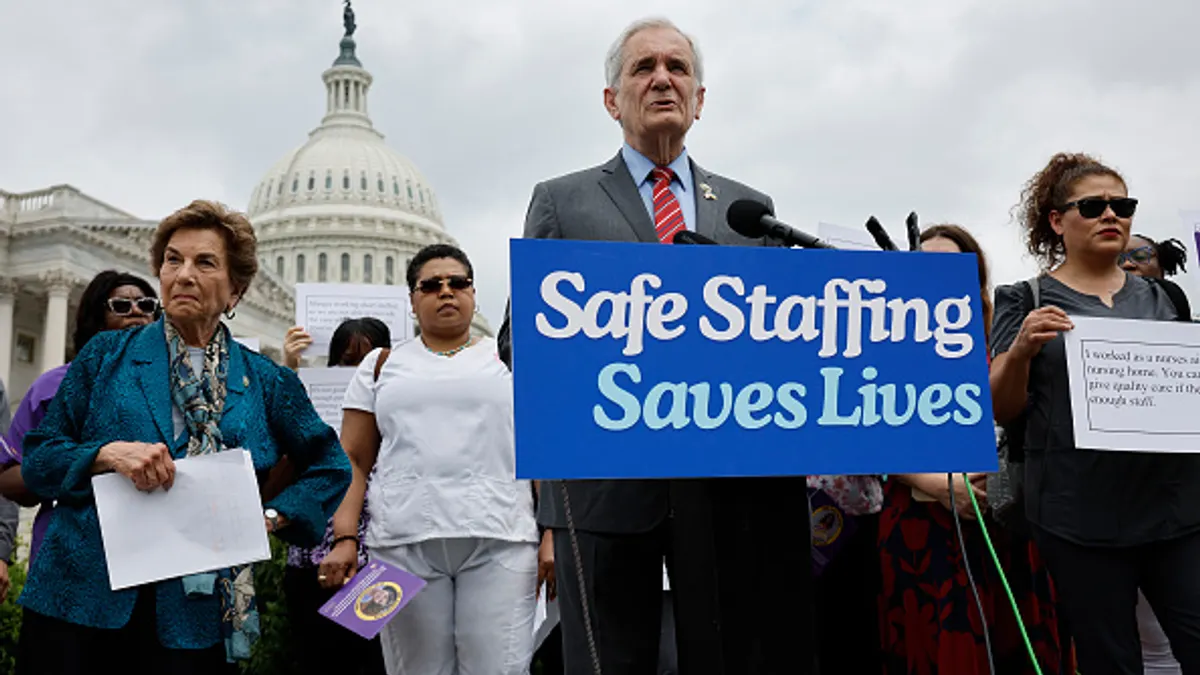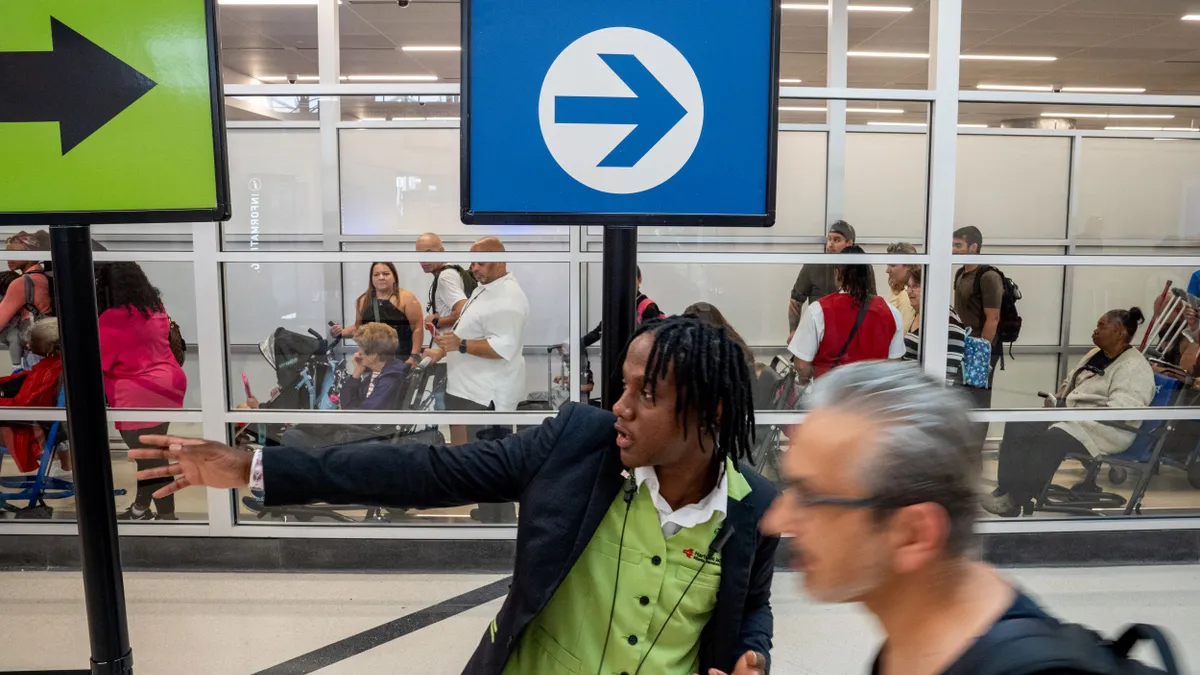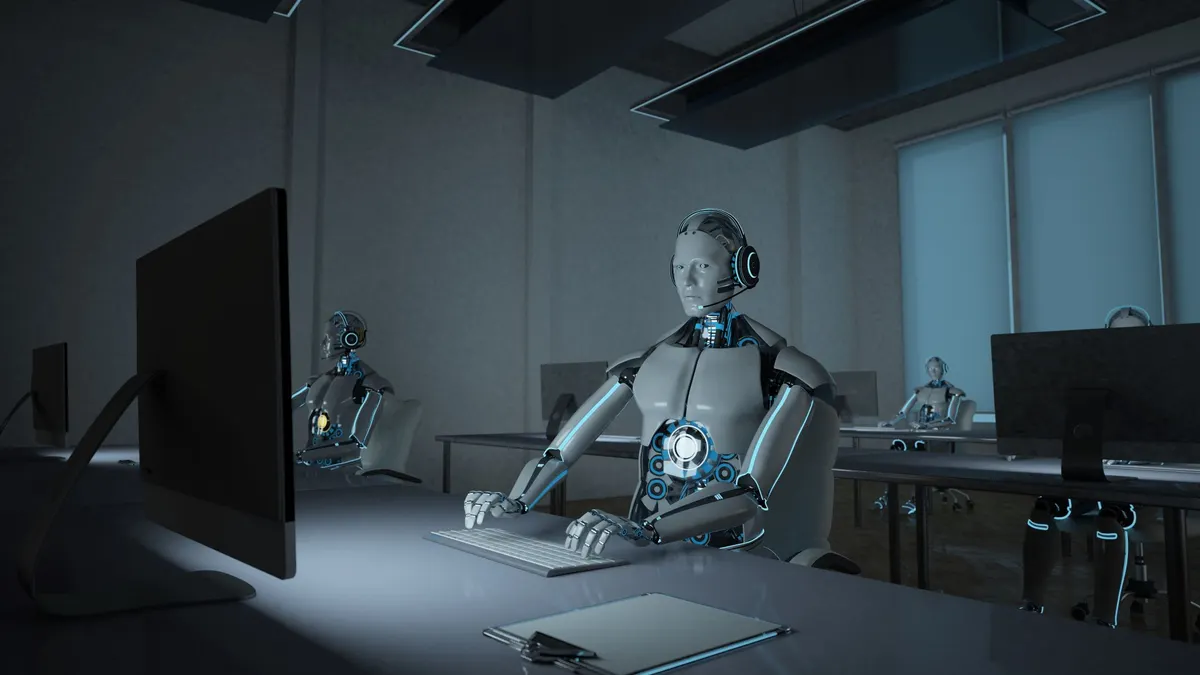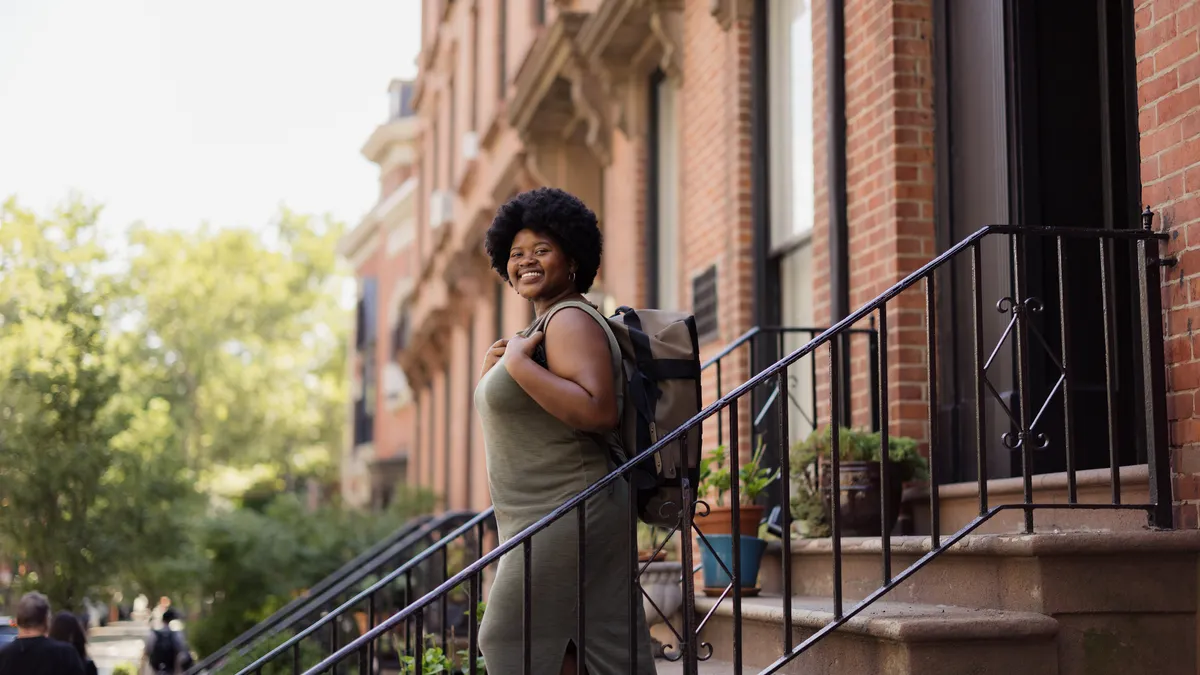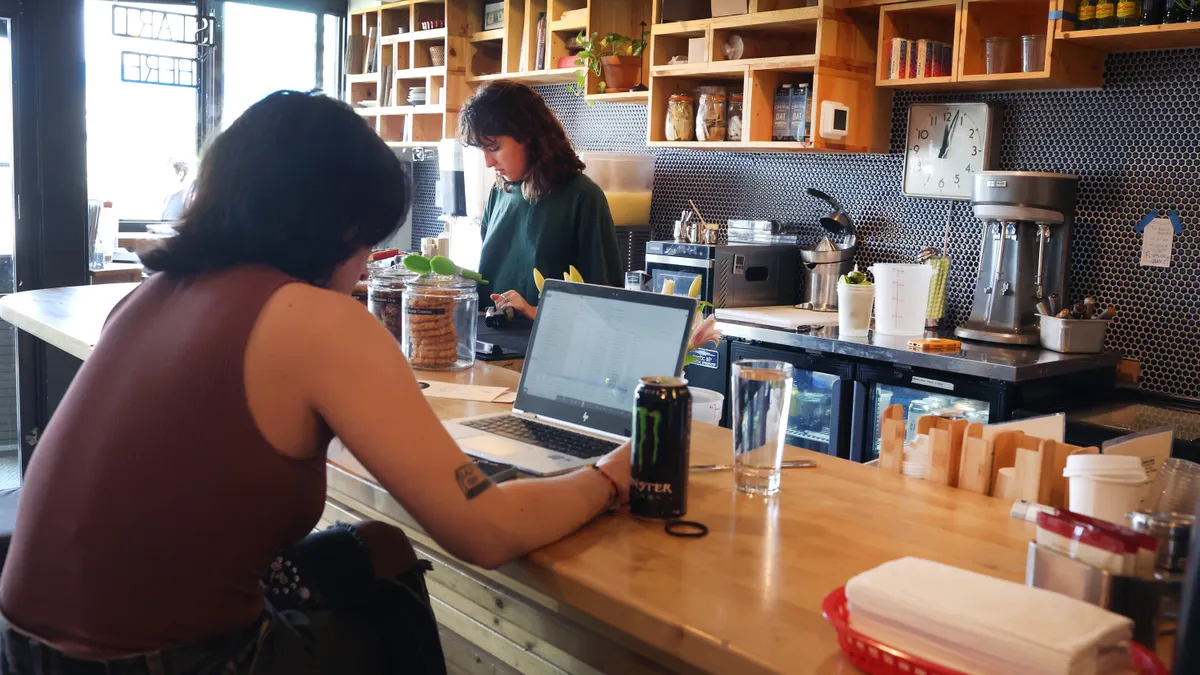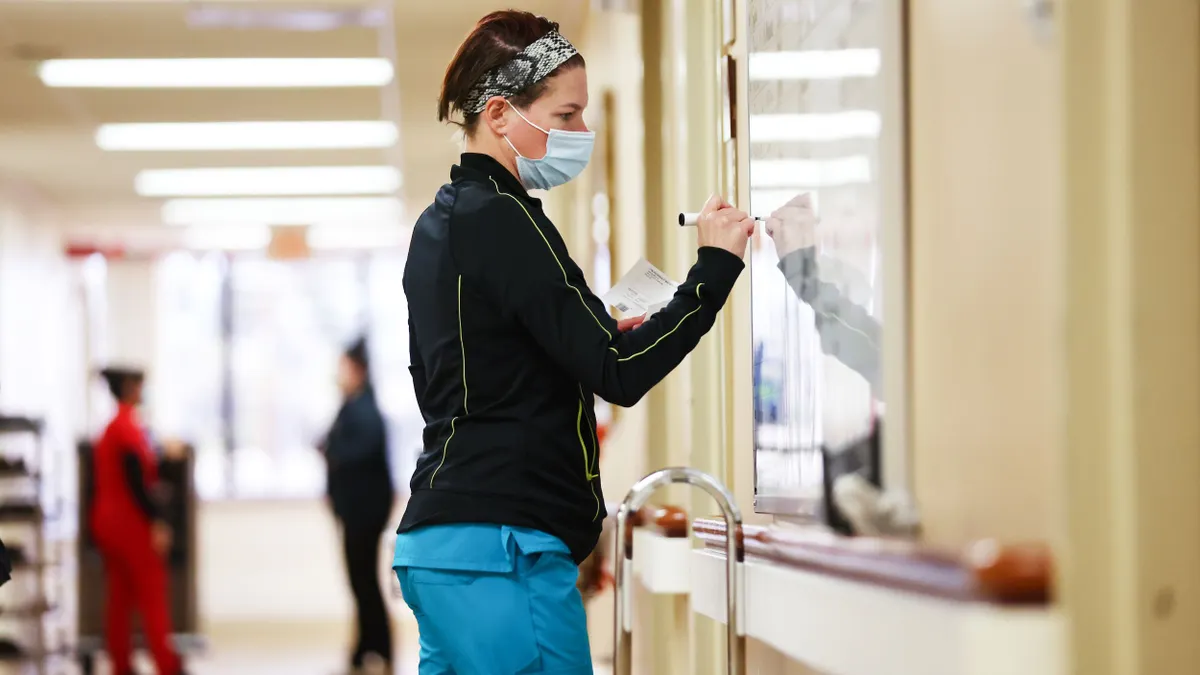The Seattle nonprofit Choose 180 recently shifted to a $70,000 annual salary standard for front-line workers. For some, this meant a raise of more than $20,000 — in an instant.
Established in 2011, the organization began as a partnership between a then-prosecuting attorney and a Black community leader; a self-described "emergency room for young people in crisis," aimed to subvert the historical school-to-prison pipeline specific to Black and brown youth, particularly boys and men ages 12 to 24. Through school diversion, court navigation, internships and other offerings, the organization has helped thousands of youth in the greater Seattle area chart their trajectory toward positive change.
"We were this Black-led nonprofit with this great culture, doing meaningful work, feeling really engaged and connected to the cause, connected to the young people we're serving, and then the pandemic hit, and it removed the gloss," said Executive Director Sean Goode. "That shiny nonprofit exterior," he said, "was gone, exposing this vehicle under [strain], with failing parts and an engine ready to blow."
Among other things, effects of the pandemic prioritized a conversation about compensation. "It was direct service employees that were earning the least," Goode said. The organization and the community had flourished over the years through programs they'd delivered, typically in person, and "[t]hese were the ones most impacted by our wage inequity," he continued. Much more so, in a pandemic, "and they began to speak up."
Opinions were passionate and divided. Some felt and voiced that their pay was better than what it would be someplace else, but "that's the worst kind of relationship to be in," he said — a relationship held together by lack. "What's the incentive to stay, doing what it is that you love," he asked, "if you could never make a living wage doing it?"
So, Goode, with the board of directors, a subcommittee on salary and the staff began to push toward a new philosophy on compensation. He asked his leadership team to build their budgets and to dream big — even telling them, if there's a need to add staff, consider where.
It was at this point that a director came to him with concerns of ethics and optics around the idea of adding staff, "when we have staff here, right now, that aren’t making a living wage, yet are working to change the material conditions [for] young people." Then came the question: "Is it possible that we're resourcing our team to live in the very same conditions that we're hoping to change for other people?"
And with that, several things were brought to the surface — among them a need for equitable valuation of lived experience in relation to education, and honoring time served at the organization, financially. "But the throughline was a living wage," said Goode, and what had once been a long-range future-dated plan became a directive.
Goode settled on the $70,000 salary because his research showed it was a number closely reflecting the cost of living for a single person in the greater Seattle area.
"We blazed a new path," he said, and in less than a month, pay raises were in place. "We made the change pretty quickly."
Goode arrived at this work by two paths: professionally, at a large nonprofit, the YMCA of Greater Seattle, where he served for several years in a variety of roles, from job sourcing to gang intervention, and organically, through a catalyzing event in his childhood.
"When I was about six years old my brother, who was 13, began serving a juvenile life sentence inside of a kid's jail for a bad decision." Even at that young age, he said, "[i]t wasn’t lost on me that my brother was capable of so much good, but because of a poor choice he made [early in life], he would be stuck in this place until he became a 21-year-old man." When Goode himself began to show signs of trouble, his brother intervened and redirected him.
"I do this work, in no small part, because of who my brother was for me, and for all the other young people who need to be elevated as a possibility to be developed, not a problem to be solved."
It’s the same principle that would one day undergird the pay equity model at Choose 180 — to elevate for possibilities.
"I remember sleeping in my car outside the Home Depot," he said, thinking back to a time in his 20s. "I would wake up in the morning, put on that orange apron, and show up talking about Happy Monday, Happy Tuesday. I mean, I know what it's like to have next to nothing and nothing at all."
But the further we’re removed from a pain point, he said, the less pain we feel. In spite of the indelible impression his brother’s life had made on his own, and even after a span of homelessness while employed, "[y]ou forget," he said. As years pass and promotions come, "[i]t's what happens to all of us. We forget what it was like when we didn’t have it."
Since the raises, staff have come to him with testimonies. "A couple of our team members are in first-time home buyer programs now, and that's really exciting. Other folks paid off their cars."
When Goode announced to the staff that the organization had "professionalized" these roles, he said it was happening for a reason, and with an expectation for professionals in their roles. "Absolutely, there's a different level of investment. People are energized, but more than anything else, they feel safe. They feel like their humanity matters; and in a residual impact, now, when young people, [program participants], see their mentors earning a living wage, suddenly, these are jobs they can aspire towards; [jobs that are] possibilities, for them, too."


